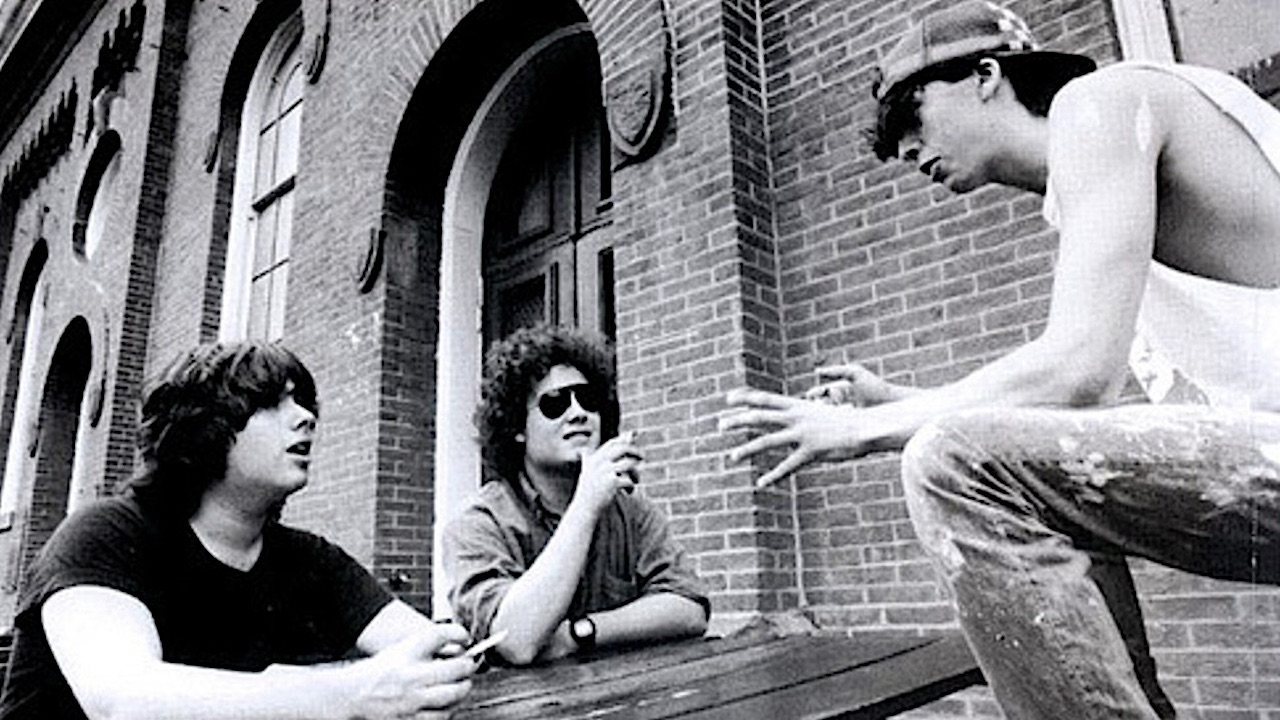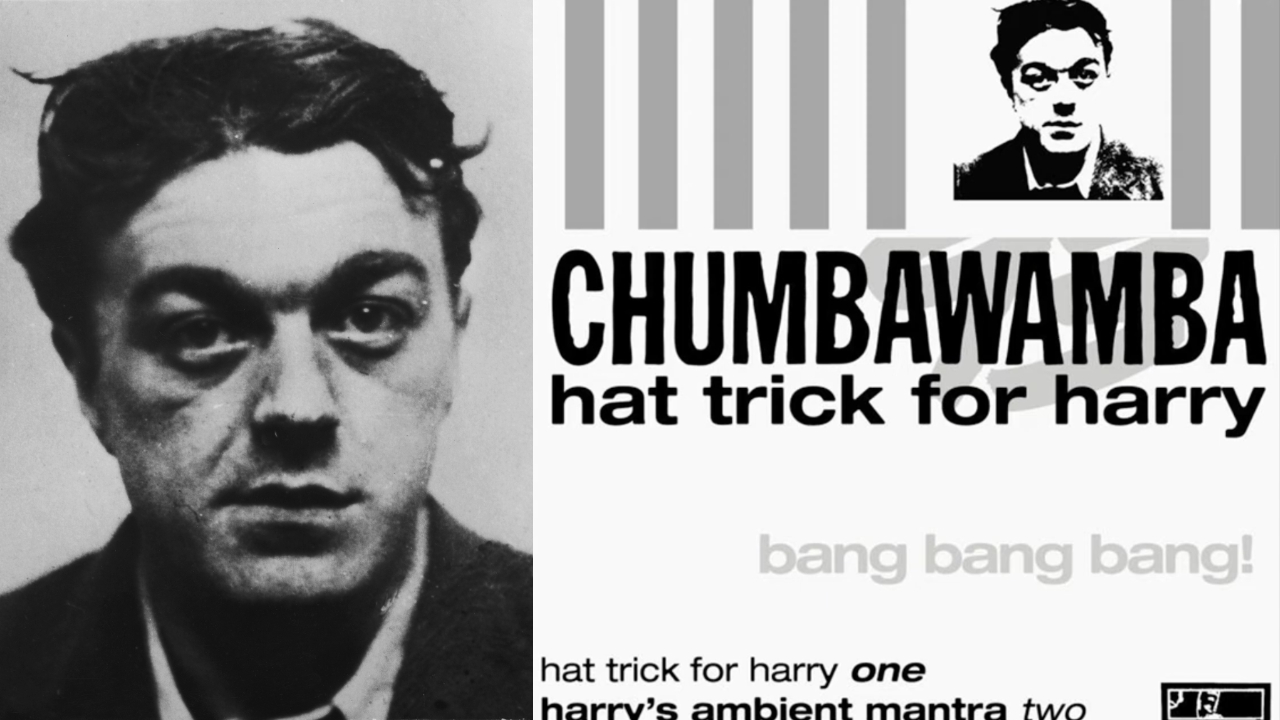"Nobody liked us because we sounded like Foo Fighters!": the inside story of the doomed Dave Grohl album no-one ever talks about
"In hindsight, I like to think we were before our time", says Dave Grohl of his 'lost' band, Dain Bramage

"It was like having your ass lifted in the air as if by magic."
This was Washington DC-born jazz musician Reuben Radding's biggest memory of his first jam session with Dave Grohl, at the drummer's family home in Virginia in autumn 1985. Grohl's previous band, Mission Impossible, featuring Radding's best friend Dave Smith on bass, had just broken up due to vocalist Chris Page and guitarist Bryant Mason moving away to start university studies, and with Radding's own band Age Of Consent also recently disbanded, an invitation was extended to the 18-year-old to come hang out at Grohl's mom's house in Springfield.
Radding didn't know his host very well on a personal level - "To me he was this very goofy but charismatic guy who was at once both shy and extroverted" he recalls - but having shared bills with Mission Impossible he was fully aware that the teenage drummer could play. "Grohl was flat out ridiculous," he told this writer in 2010. "It was like watching a young Keith Moon." And 25 years on, his memories of his first time jamming with Grohl remained vivid.
"I don’t think I’ll ever forget what it felt like," he said. "It was not like playing music with anyone else. Listening to Dave Grohl play the drums had always been a gas, but playing with him was instantly addictive and a total rush."
Dave Grohl's own memories of that afternoon were rather more basic.
"We smoked a whole bunch of pot," he remembers, "wrote four songs and Dain Bramage was born."
That Dain Bramage were not seeking to recapture the adrenalised hardcore rush of Mission Impossible is evident by the fact that their second demo - recorded by Grohl's friend Barrett Jones - included a cover of Grand Funk Railroad's We're An American Band. The group took influences from classic rock (Led Zeppelin, Black Sabbath, Grand Funk, obviously), hardcore/post-punk (Mission of Burma, Hüsker Dü, Moving Targets) and metal (Metallica, mainly), and Grohl remembered the trio as being "extremely experimental, usually experimenting with classic rock clichés in a noisy, punk kind of way."
Remarkably, footage of the group's very first gig, at the Burke Community Center (also known as the Lake Braddock Community Center) on December 12, 1985 is on YouTube. It's pretty clear which band member is the star of the show - check out Grohl's drumming at 13:16 - a fact that Reuben Radding recognised immediately.
I could play all the guitar I wanted, and sing like a motherfucker, but all eyes were gonna be on Dave all the time
Reuben Radding
"It was the first time as a front man that I ever experienced seeing an entire audience looking over my left shoulder through the whole gig," he told me. "I had to get used to that pretty quickly, playing with Dave. I could play all the good guitar I wanted, and sing like a motherfucker, but all eyes were gonna be on Dave all the time. At first I resented it. Then I embraced it. We should have set up like a jazz band with him on the side facing in, then at least I could have watched too. Dave’s charisma was ever-present, both in performance and off stage."
When I interviewed Dave Grohl in 2009 for a career retrospective cover story for UK music magazine Mojo, he summed up his time in Dain Bramage in a single sentence: "Nobody fucking liked us, because we sounded like Foo Fighters."
The latest news, features and interviews direct to your inbox, from the global home of alternative music.
This was a somewhat flippant, throwaway comment which doesn't do Dain Bramage justice. Some of Grohl's best friends preferred the band to Mission Impossible, and Fugazi's Ian Mackaye recalled the trio being "a little less euphoric than Mission Impossible, and not quite so out of control, but cool." The main problem in the group's short history was that by the time their debut album, I Scream Not Coming Down, was released, Grohl had already quit the band to join his favourite local act, Scream.
The album had been recorded over four days in June 1986 at RK-1 Recording Studios in Crofton, Maryland with engineers E.L. Copeland and Dan Kozak, formerly the guitarist in Radding’s old band Age of Consent.
From the start, sessions were fraught. Within minutes of the band setting up their gear on June 21, local police shut down the recording, having been summoned by a noise complaint from Copeland’s college professor neighbour. Then, literally minutes after the cops left, a thunderstorm knocked out all the power in the studio.
"It was probably the worst first weekend of recording I’ve ever had in my life," Copeland admitted to me in 2010. "But the band were extremely organised and we quickly caught up. There wasn’t a lot of fiddling around or double-takes, it was just boom!"
"All the guys in that band were really energetic," he added, "but Grohl was something special. I thought it was really weird to see somebody beat the living piss out of a drumkit, I’d never seen that kind of playing before. We had a blast, it was a good time."
Later that summer, after receiving a test pressing of the record from Fartblossom, the Californian label who wanted to release the album, the trio premiered some songs on a Sunday evening show on local ‘alternative’ radio station WHFS. Grohl's mother Virginia taped the show on a cassette, and her son listened back proudly to the recording later that evening.
"I remember thinking that it was so fucking cool that there was a DJ introducing one of our band’s songs, going out to maybe a couple of thousand people," he told me in 2002.
"And that," he added with a theatrically raised eyebrow, "was when I knew that eventually, one day, I’d become the world’s greatest rock star."
This, obviously, was a joke. In his 2021 memoir The Storyteller, Grohl looked back on Dain Bramage in a more reflective manner.
"In hindsight, I like to think we were 'before our time' as our sound would have fit right into the underground explosion of the early nineties, mixing the energy of punk rock with the melodies of R.E.M., Mission of Burma and Hüsker Dü," he wrote. "But at that time, we were still just kind of floating."
Reuben Radding admits he was "devastated" when Grohl told him that, with their album still pending, he was quitting Dain Bramage for Scream. Ironically, finished copies of I Scream Not Coming Down album arrived at his house just weeks laters.
"I both could and couldn’t understand his decision," Radding admits. "I was pissed off and I stayed pissed off for a very long time."
I Scream Not Coming Down finally hit record stores nationwide on February 28, 1987. The album was largely met with positive reviews. Tim Yohannon of hardcore 'bible' maximumrocknroll categorised it as "quirky, jangly hard pop meets the DC sound", and hailed the band’s "complex’" arrangements. Suburban Voice fanzine praised the album’s "heart, energy and guts", describing it as "tuneful enough to stick in your head, with enough stylistic variation to make it come across as original." Dave Grohl himself would later hail the album as "a fine demonstration of our blend of rock, art punk and hardcore". But his decision to move on meant that Dain Bramage's accomplished debut was effectively doomed before anyone ever heard it.
For more on Dain Bramage, Mission Impossible, Scream and Dave Grohl's rather more high profile post-Dain Bramage bands, pick up This Is A Call.

A music writer since 1993, formerly Editor of Kerrang! and Planet Rock magazine (RIP), Paul Brannigan is a Contributing Editor to Louder. Having previously written books on Lemmy, Dave Grohl (the Sunday Times best-seller This Is A Call) and Metallica (Birth School Metallica Death, co-authored with Ian Winwood), his Eddie Van Halen biography (Eruption in the UK, Unchained in the US) emerged in 2021. He has written for Rolling Stone, Mojo and Q, hung out with Fugazi at Dischord House, flown on Ozzy Osbourne's private jet, played Angus Young's Gibson SG, and interviewed everyone from Aerosmith and Beastie Boys to Young Gods and ZZ Top. Born in the North of Ireland, Brannigan lives in North London and supports The Arsenal.
